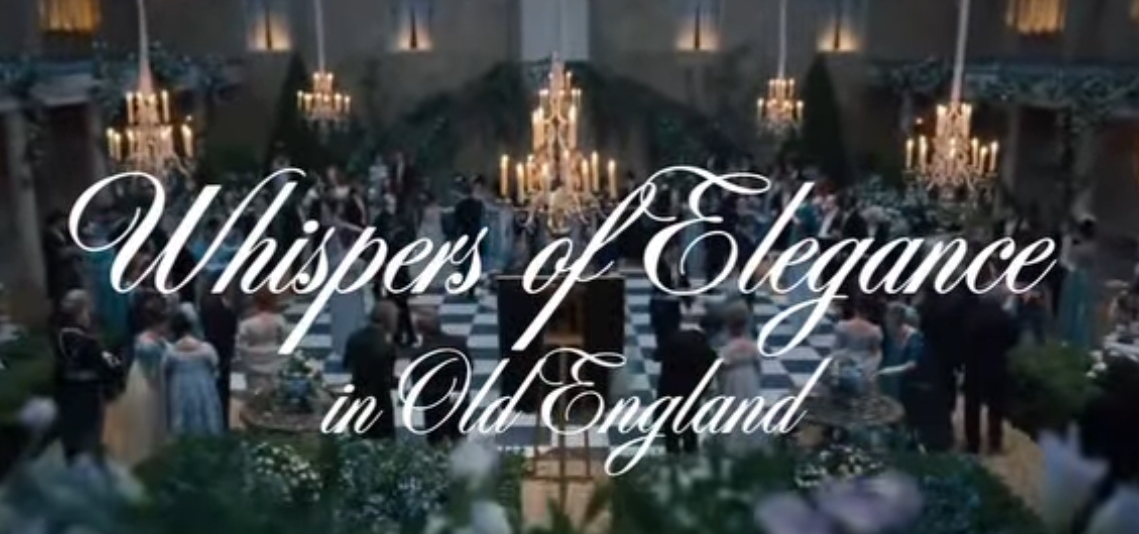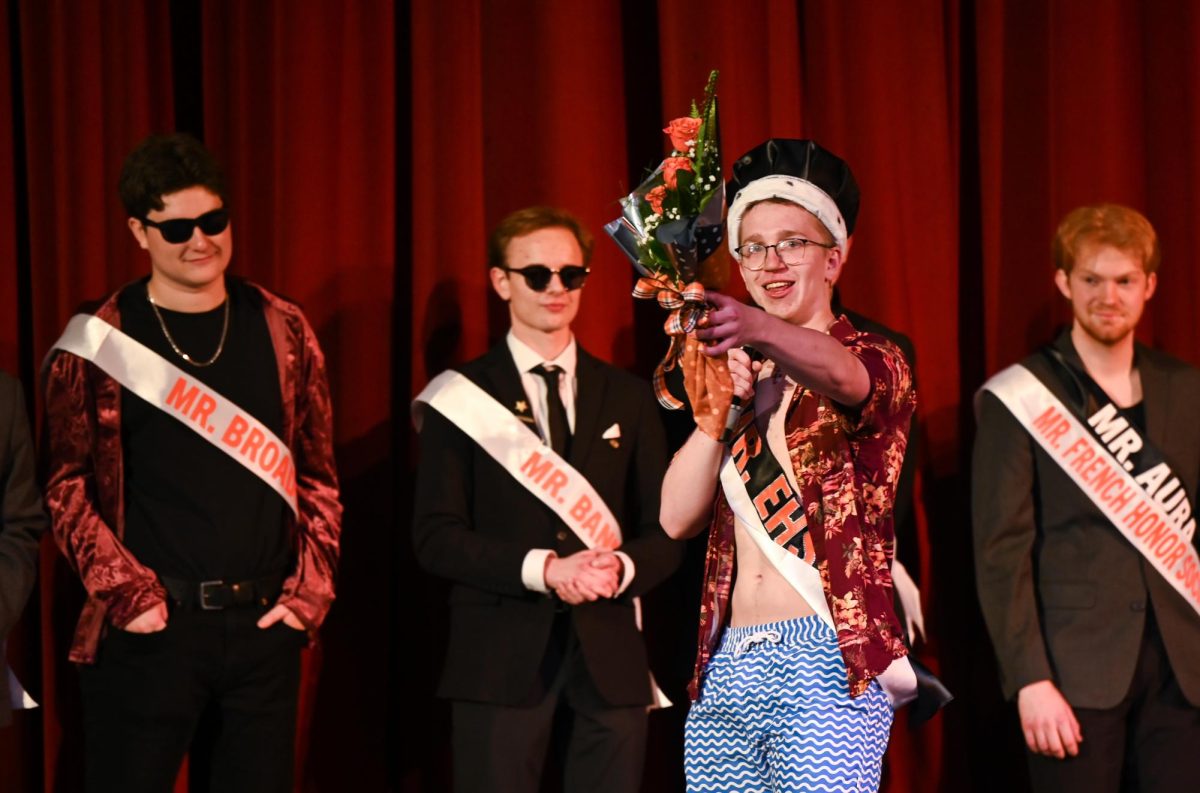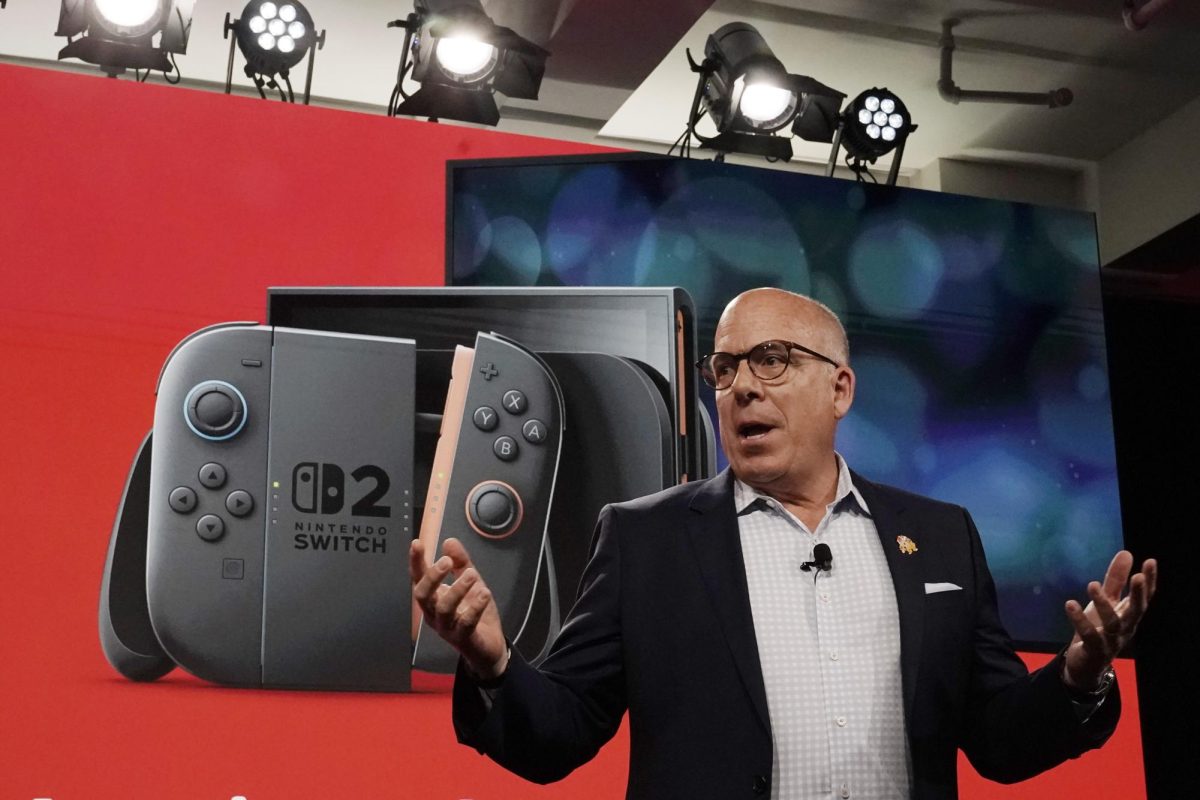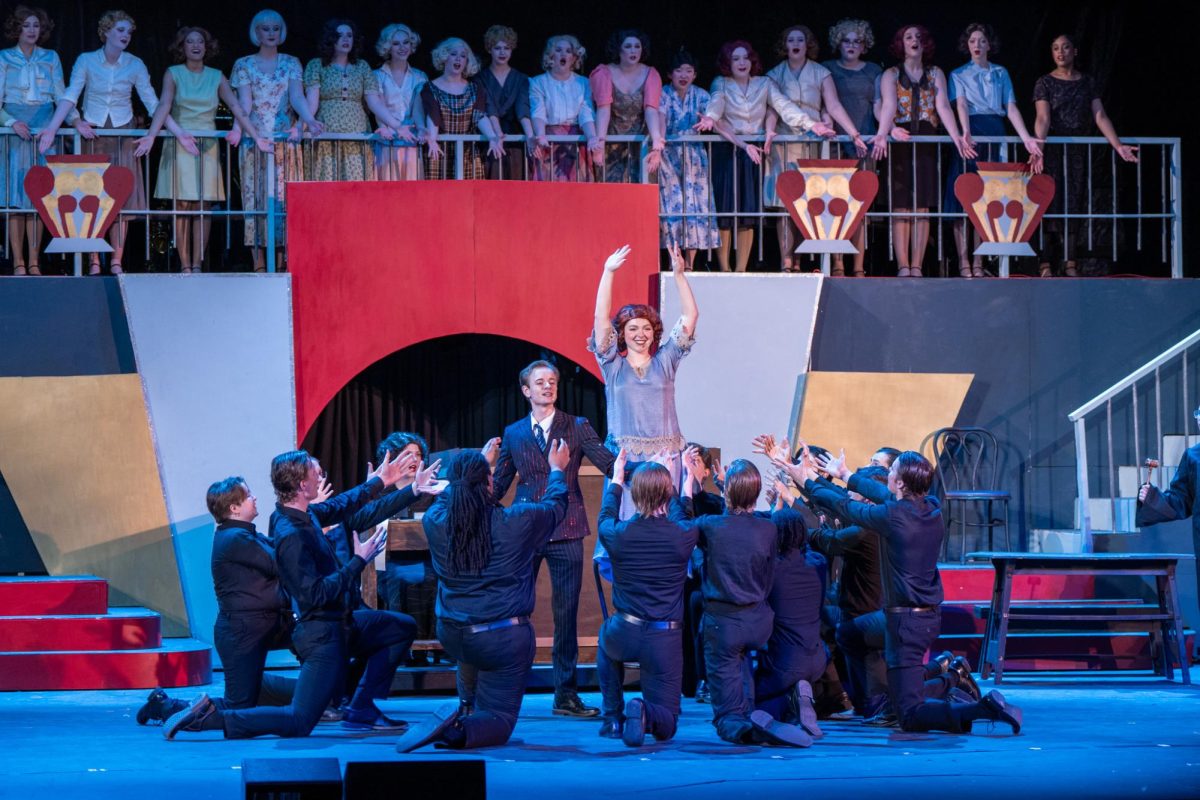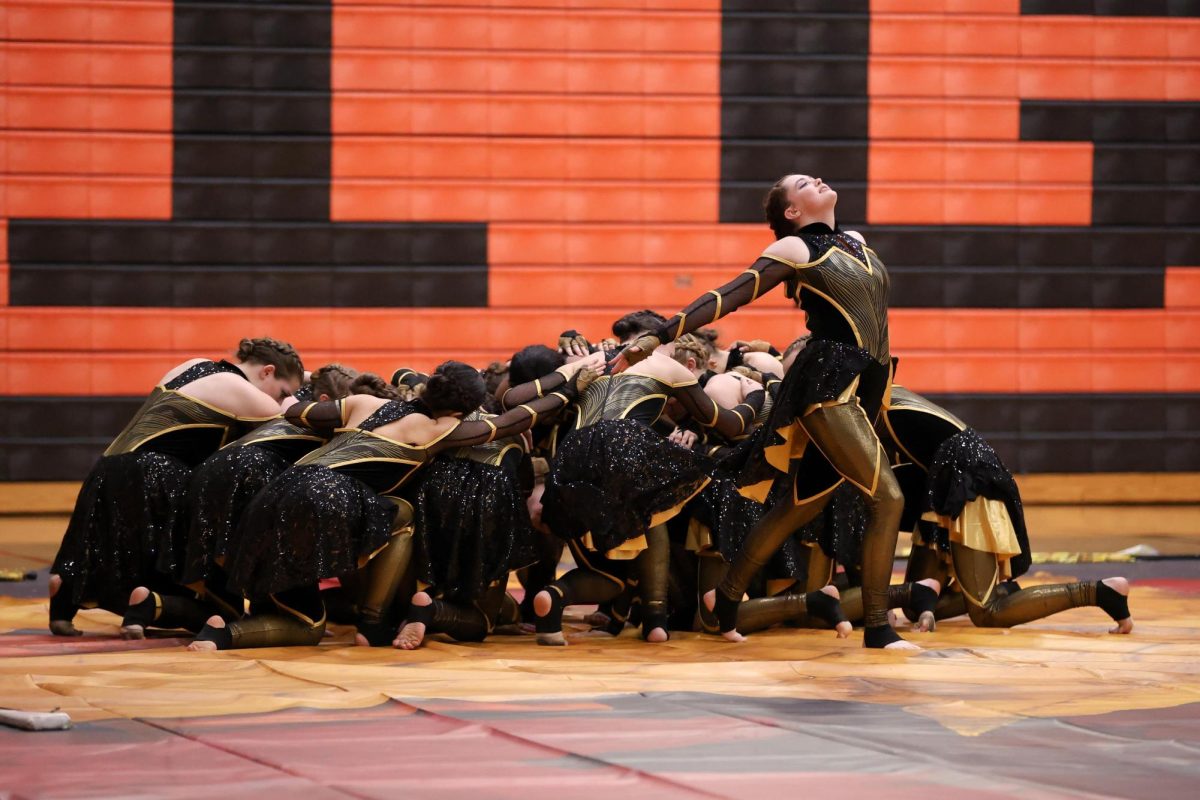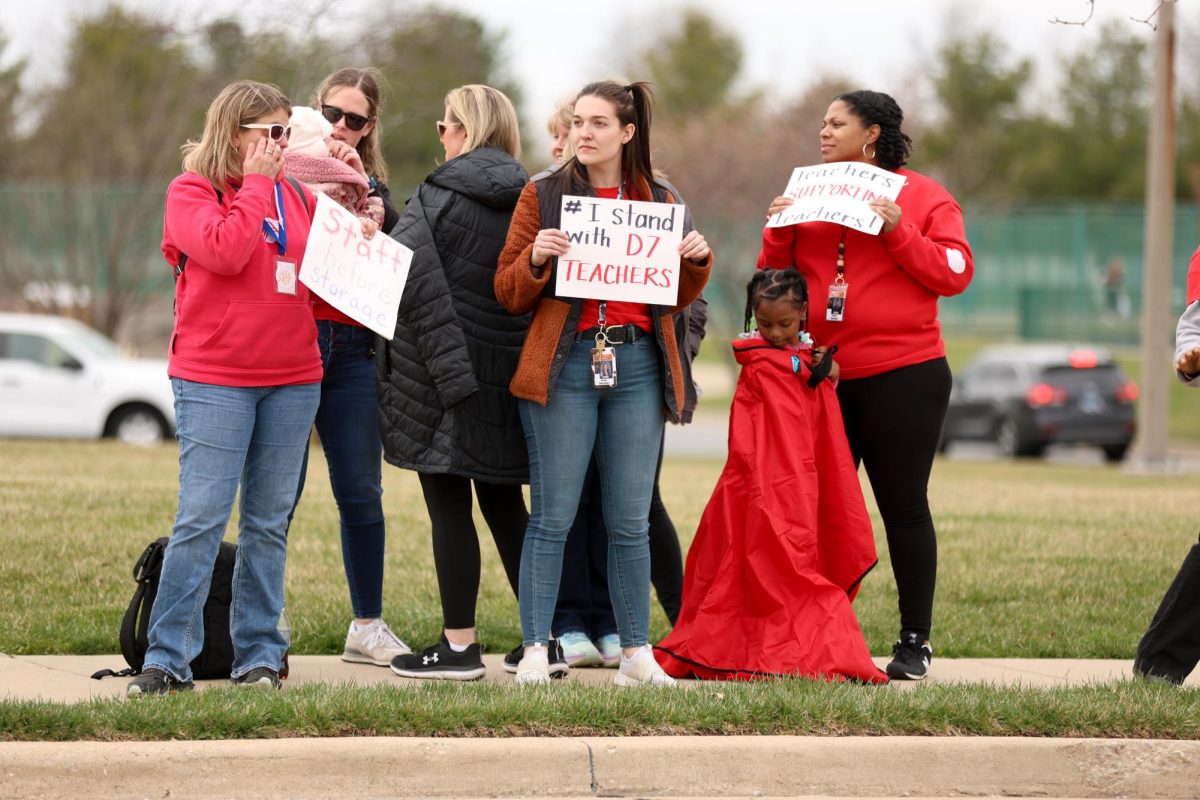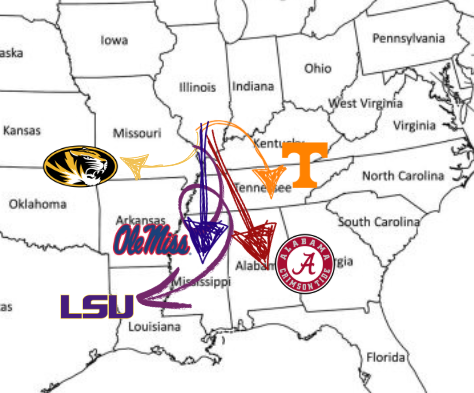Model UN Visits Chicago, Focuses on Delegation
February 9, 2017
sWhen people think of Chicago, they usually conjure images of daunting skyscrapers, bright lights and new opportunities. While Model UN participants notice the trappings of the big city, they set their sights on the opportunities— many of which stretch outside the city limits.
Every year, Model UN travels to Chicago to attend Model United Nations at University of Chicago. Participants were assigned to a country in advance; EHS represented Switzerland. Then students were divided into committees designed to approach different world issues.
Junior Mitchell Heberer and his partner junior Dylan Loyd represented Switzerland on the International Atomic Energy Agency. To uphold Switzerland’s reputation, Heberer had to approach the agency with Swiss views, not his own.
“In Model UN it’s not your point of view (that matters), it’s the viewpoint of the country you’ve been assigned to,” he said. “Nuclear power is a good idea for developing countries; however Switzerland wants to go into greener power sources.”
Heberer focused on asserting green energy options to the rest of the committee. While not everyone complied, he ultimately accomplished his goal.
“We were working in a coalition of countries on a resolution paper that included everything (Switzerland) wanted, but the other resolution paper was barely voted in,” he said. “It was a very close vote, but (Loyd) and I were happy.”
Meanwhile, juniors Grant Berkbigler and Alex Wang asserted Switzerland’s views on capital punishment in the Human Rights Council. Berkbigler aimed to improve his public speaking while weighing in on death penalty regulations.
“I think I accomplished what I was trying to do,” Berkbigler said. “I would have rather had a different resolution pass, but (Wang) and I couldn’t decide which would be more effective, so we abstained from the vote in typical Swiss fashion.”
Not only were students appointed to speak on behalf of Switzerland, but they were also offered the opportunity to represent Turkey on a single-delegate committee. Unlike the rest of Model UN, senior Kathleen McCracken chose to portray Turkey’s views on the Historic Security Council of 1950.
“I have never worked with a partner; it’s more challenging not to,” McCracken said. “The interesting thing about this year was that everyone else on my committee, except for one other country, were double delegations. While they were able to have two people thinking and doing things at the same time, I was the only one (alone).”
McCracken hoped to win an award to mark her final year participating in MUNUC, but her main priority was to voice Turkey’s opinions and to be included in the resolution.
“I wrote a working (resolution), and certain parts of my working paper were really good,” she said, “but because of the nature of Security Council, it wasn’t plausible to pass (my resolution).”
Despite having to neglect her draft, certain aspects of her paper were included as amendments to the resolution. She also focused providing humanitarian aid instead of military because of Turkey’s minimal force. McCracken’s goals came full-circle when she was awarded a speaking award for her exceptional work as a delegate.
“I think (Model UN) gives insight on what life is going to be like because you come into contact with people who don’t have the same opinion as you,” Heberer said. “It is a great way to meet other students from around the world and have fun doing so.”




